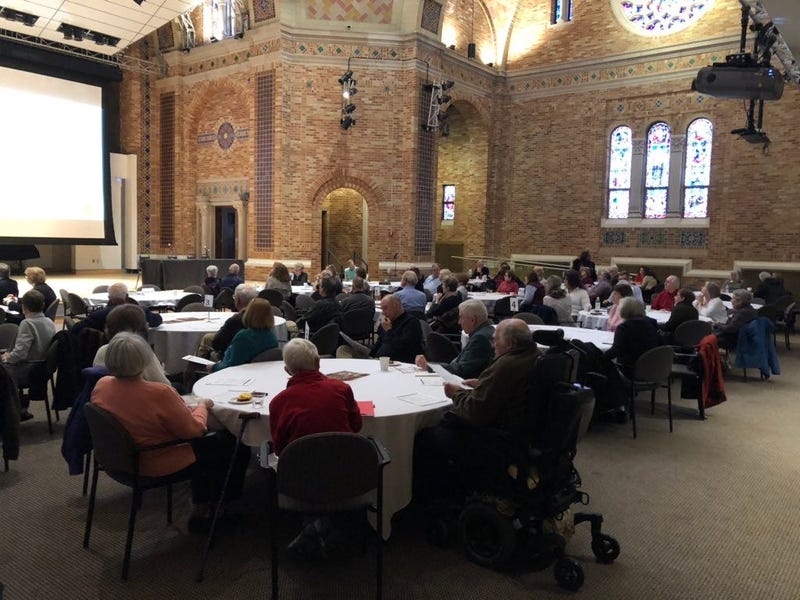BUFFALO (WBEN - Brendan Keany) - In October 2018, the Movement to Restore Trust was formed by a group of independent Catholics who were concerned with the Diocese of Buffalo's handling of clergy sex abuse cases.
On Saturday, the group held their third symposium, in an attempt to communicate their findings after a couple months of research.
The Movement to Restore Trust, an initiative started by Catholic lay people, is holding its 3rd symposium today at the Montante Cultural Center. The organizing committee is sharing findings and recommendations from several workgroups that have been meeting the past few months. pic.twitter.com/fbW35awv7a
— WBEN NewsRadio 930AM (@NewsRadio930)
March 9, 2019 "This is a report-back session and an opportunity for us to report back to the six workgroups we've had working since early December on several issues relating to the sex abuse scandal and the Diocese handling of that," said John Hurley, who is on the organizing committee and also serves as president of Canisius College. "We wanted a chance to share with all of the people who participated in that effort what came out of that and where we're going to go next with this Movement to Restore Trust."
Back in December, several hundred people attended a workshop that was able to narrow down the specific information that the workgroups were looking to find:
- Transparency around the nature and scale of abuse in the Diocese and financial and spiritual reparation for the victims
- Transparency about all diocesan operations
- Accountability for bishops
- Lay government in selecting and monitoring bishops
- Greater involvement by women/laity in the Church
- Improvements in formation of priests and priestly life
Below are the main themes they found across the six workgroups:
- Commit to a partnership with the laity to restore trust
- Embrace the opportunity to act voluntarily now
- Address the needs of survivors for support and healing
- Provide complete transparency into the scale of the abuse in both human and financial terms
- Ensure the faithful are central within organizational structures of the church
- Voluntarily delegate greater authority to the consultative bodies in the Diocese
- Establish accountability with periodic review implementation
- Engage the Leadership Roundtable
- Revive the spirit of Vatican II
Stephanie Argentine became involved with the organizing committee, and she discussed some of the findings with WBEN.
"It's called the Movement to Restore Trust, and so it's not particularly surprising that the core findings that we found were all about how trust gets eroded, and then how you recapture and restore trust once that's happened," said Argentine. "They're pretty fundamental in terms of transparency, sharing information and those types of things."
All of the information that was gathered by the workgroups was then submitted to Bishop Richard Malone.
"Before today's meeting, we shared the results of our report with Bishop Malone, we've met with him twice...it's been received very well, and there things that are going to happen immediately," he said. "The bishop is suggesting that we think about appointing a joint implementation team involving members of a couple of his consultative bodies and our Movement to Restore Trust members, and begin to develop a timetable for how we begin to implement these things, so I am very, very encouraged by that response."
"I would say I'm more encouraged," she said. "Personally, I was raised Catholic, and as one example, my husband is not Catholic, so my own attendance at church has sometimes been somewhat sporadic, and I've been back since I started this process."

